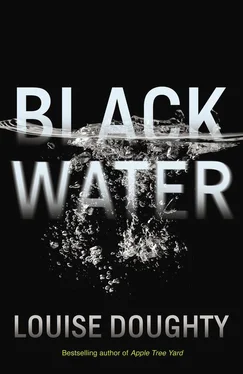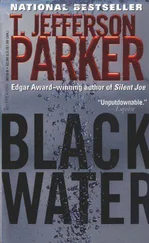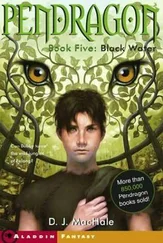In the middle of the page was a list of addresses or sometimes just the single word for a street or district. After the addresses, there was a third column that had handwritten annotations in fine pencil. Harper peered at them but couldn’t decipher the tight scrawl. Eight hundred names, on this list alone: eight hundred people.
It was only after he had clipped the sheaf of paper back into place, brushed at a little dirt that had transferred onto it from his hands and replaced it in the leather case, that he realised what the numbers in brackets probably meant: family members, wives, children, cousins or servants, anyone else in the household who might be of interest.
He stood and walked towards the opening, the leather case still in his hands. Outside, the rain had stopped and darkness had fallen. The moon would rise soon.
He crouched down on his haunches and rested his back, wincing as he did, against the precarious wall of the shack. He wrapped his arms around the leather case and clutched it to his chest. He closed his eyes.
The sheaf of paper he was holding against his heart, his beating heart, the list of names: he was holding death. He was death.
He kept his eyes closed. It was still unnaturally quiet for early evening in Jakarta but around him, he could hear people stirring in the shacks; a woman called out and then was silent, a baby or toddler let out a half-hearted, old-sounding cry.
He thought of Parno, waiting in his bungalow, with his wife and his stuffed tiger. He thought of the people on the list, who were somewhere eating a meal or sleeping or talking to their children. He thought of the secretary who had typed it, the one whose fingers had come down so firmly on the clacketty typewriter that the ‘i’ key had made those holes in the paper. He thought of a room full of men in suits, all seated around a big oval table, with coffee and ashtrays on it, clipboards, an expensive watch that the man in charge had detached from his wrist and placed in front of him in order to keep an eye on the time because he didn’t quite trust the wall clock, which was no way near as expensive as his watch. He thought of a soldier, somewhere in a barrack, here in Jakarta, cleaning a gun. Someone, somewhere, was checking the oil on the engine of the jeep that would transport that soldier to the addresses now in Harper’s possession.
He opened his eyes. The moon had risen. Its glow lit the surface of the canal. If he leaned out over the water, he would be able to see a version of himself, reflected.
Of all the people he had just thought of, he was, as far as he knew, the only one in possession of the list. Perhaps there was a copy somewhere, perhaps there wasn’t. It would be egotistical to think of himself as the sole possessor of it, surely? He was nothing more than a courier. He wasn’t going to kill anyone. But put all the people he had just thought about — and him — together, and collectively they were going to kill all eight hundred people on this list, and their families: (4) or (2) or (9).
Those people were going to be killed anyway. The list might speed things up a bit, that’s all — and think of all the people who would have been killed if the Communists had succeeded in taking power. A man like him wasn’t a policy-maker. The big decisions could only be made by people who had all the facts. He, Harper, only knew a tiny percentage of the story — you had to look at the big picture, after all. He had been hired to pick up a leather case and deliver it somewhere else. If he hadn’t been hired to do that job, then someone else would have been.
He stared at the surface of the canal, flat and black as oil, glossy in the moonlight, and it came to him that he did, after all, have a choice. He could stand up and with one swing of his arm, using hardly any force at all, toss the leather case into the water in front of him, where it would float for no more than a second. In the chaos of Jakarta, it was easy for a man to fail in what he set out to do. In the time it would take for another list to be drawn up or copied, another handover to be arranged, perhaps a handful of people would be warned and disappear, escape to the country — who knew?
Further down the canal, there came the laughter of some girls. They would have slipped out under the cover of darkness to protect their modesty, now the mobs had quietened and the smell of burning had been dampened by the rain. They would be bathing and washing their hair in the black water where everyone urinated and rubbish was thrown, where the canal was opaque enough to hide all manner of secrets.
He stared at the water. The only secret the canal would hide that night would be that he had realised he had a choice. He went back inside the shack. He put the leather case back into his holdall and then bunched the holdall up so that it formed a pillow. He laid his head on it and slept for some time, opening his eyes later while it was still dark, then lying there, waiting for dawn.
Two days later, handover done, he was having a beer with Abang by the Bali Beach Hotel and thinking that it was the best beer of his life. Blood sinks into sand really fast.
Afterwards, Abang drove him to his bungalow in Denpasar, only ten minutes from the centre of town but in a wide, tree-lined street behind some of the old buildings, now closed and boarded. Few people were out and about: two elderly men, shirtless and wiry, in bamboo hats and sarongs, digging at something in one of the ditches by the side of the road; a woman walking with a huge cloth bundle balanced on her head, her compact figure swaying a little with the effort, her hands loose by her side. As they drove past, he glanced back, to see if she was beautiful, but she was older than she looked from behind. Denpasar struck him as unnaturally quiet.
Abang had stayed with a family in the Chinese district for a bit — it was a good way of finding out what was happening on the ground, he said, but it got too dangerous after a while. ‘The British have this phrase, you know this one? A bird in a coal mine. The little yellow birds.’
‘Canary. Canary in a coal mine.’
‘That’s it.’
Abang made a point of moving lodgings every three months. People forgot their suspicions about you once you moved — even if they remembered you, your absence rendered you innocuous.
The bungalow was set back from the road, hidden behind a head-height wall in its turn obscured by tall bushes. The doors in the narrow stone entranceway were thick carved wood — the hinges creaked as they pushed their way through. Never oil the hinges, always scatter gravel beneath your doors and windows: these were the ways you made yourself secure without anyone knowing that was what you were doing. As they crossed the small lush garden and approached the front porch, he saw there was a young woman kneeling on the step preparing an offering. She smiled at Abang and Abang smiled back, then said something to her in a language Harper didn’t know. The young woman bent over the offering, eyes closed, for a moment, then rose from the step and, in a bowed position, backed away down the path.
Inside, the bungalow was clean and plain. Abang extended his arm and Harper sat on a low, wooden two-seater with woven cushions. Abang went out back and returned with two bottles of beer — he handed one to Harper, they gestured cheers! at each other, then Abang went over to an old filing cabinet against one wall that had a wide, shallow bowl on top full of incense sticks and limp petals with curled brown edges. He tilted the bowl and from underneath it withdrew a thin notebook, which he tossed over to Harper. ‘Back inside page.’
There was a name and the description of a village, a diagram sketched lightly in pencil.
‘That’s the village, Komang lives just outside it,’ Abang said, walking over to and sitting next to him. He pointed at the page. ‘He’s our contact in the district. He’s very well connected with the neighbouring villages, sits on the Irrigation Committee and his cousin is Big Man in the next village. His brother-in-law is a civil servant over in Klungkung Town.’
Читать дальше












